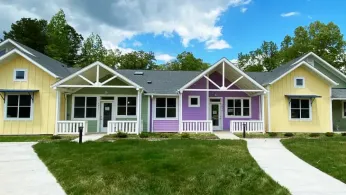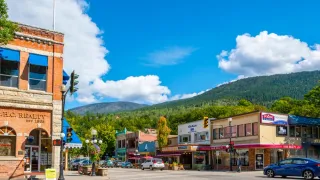
5 hours ago
Building Safe Havens: Village Hearth and the Urgent Need for Queer Senior Spaces
READ TIME: 3 MIN.
In July 2025, Instinct Magazine published an in-depth feature on Village Hearth, a pioneering LGBTQ+ senior living community in North Carolina, spotlighting the urgent need for affirming environments for older queer adults. As the U.S. population ages, many LGBTQ+ elders face the dual challenge of finding safe housing and remaining true to themselves—a task complicated by lingering prejudice, systemic barriers, and a lack of family support.
Village Hearth was conceived and built by Margaret Roesch and her wife, motivated by their inability to find a retirement option where they could live openly. “I know if we ever ended up in assisted living or in a nursing home that we would have had to go back in the closet, potentially,” Roesch explained—a sentiment echoed by many older LGBTQ+ Americans.
Traditional senior living arrangements often fail to meet the needs of LGBTQ+ people, particularly those who lack adult children or supportive family networks. The fear of returning to the closet—a reality for many entering assisted living facilities—can lead to profound isolation, depression, and health disparities. Studies by SAGE, a national advocacy organization for LGBTQ+ elders, confirm that older queer adults are at greater risk of social isolation and face unique barriers to healthcare, housing, and financial stability.
Barb Chase, a 73-year-old resident of Village Hearth, candidly described her experience: “I lived my life pretty much in the closet, and I was ready for an experience that was super affirming”. She is not alone. Many residents echo the sentiment that their generation, shaped by decades of caution and self-censorship, still struggles with the impulse to avoid “making people feel uncomfortable.” This ingrained caution underscores the necessity of spaces explicitly designed for LGBTQ+ community members.
Village Hearth, along with other community-focused initiatives such as EAGLES Academy, provides not only safe housing but also daily comfort and authentic connection. Residents report a sense of belonging and freedom, enjoying the simple joy of living openly. For Ike, another resident, the need for such spaces is urgent: “I feel like we’re going backwards, and so I think this type of community is needed more”.
Experts agree that affirming environments can lead to improved mental and physical health outcomes for LGBTQ+ elders. These communities foster social support, reduce feelings of invisibility, and allow residents to age with dignity, authenticity, and pride.
The success of Village Hearth aligns with a broader movement toward inclusive senior housing. Projects in Los Angeles, Philadelphia, and other major cities are breaking ground, attracting attention from policymakers and advocates. However, barriers persist: affordable housing shortages, discrimination in healthcare and housing markets, and insufficient federal protections continue to impact LGBTQ+ seniors disproportionately.
Advocates call for continued expansion of affirming spaces, greater visibility of LGBTQ+ elder issues, and robust policy reforms. As Roesch and other pioneers have demonstrated, grassroots activism and community investment can create transformative change—but broader systemic support is essential.
Instinct Magazine’s coverage closes with a powerful message: spaces like Village Hearth are more than buildings. They are declarations that every LGBTQ+ person, at every stage of life, deserves to live without fear and with full acceptance. In times of political and social uncertainty, these communities stand as beacons of hope—reminding us that dignity, affirmation, and belonging are rights, not privileges.
As the aging LGBTQ+ population grows, the fight for safe, affirming senior spaces will remain vital, shaping not only individual lives but the future of the movement itself.






